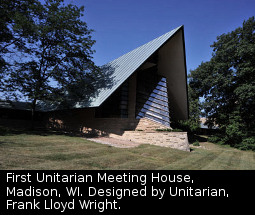Voting to Apostatize: Unitarianism

Several hundred years ago, a heresy sat poised, ready to ignite. All it needed was the right match, and 18th century Christianity would be engulfed in flames. The match was found in a young pastor and his congregation just outside of Boston, Massachusetts, USA. The heresy, now called Unitarianism, still simmers and burns today all over the world, but especially where I live in New England.

 Republished with permission from
Republished with permission from
Discussion